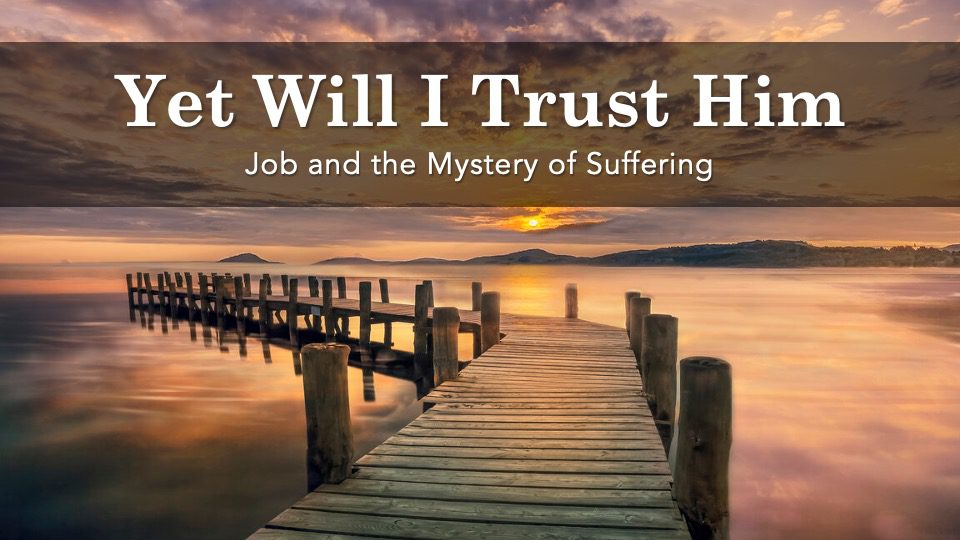
Yet Will I Trust Him, Part 6: The End of Suffering (Job 42:1-17)
Everyone loves a happy ending. Most of our fairy tales begin with, “Once upon a time,” and they end with, “And they lived happily ever after.” That’s the way they’re written because that’s the way we want them. That’s the way we like them. Some would say that that’s the way we need them. In The Wizard of Oz, for example, Dorothy finally makes it home, where she’s longed to be from the very beginning. In Beauty and the Beast, the prince is restored, and the curse on the castle is finally lifted. In It’s a Wonderful Life, George Bailey learns it was better for his town that he lived instead of jumping off a bridge. In Willy Wonka, Charlie Bucket inherits the entire chocolate factory for passing a test and returning the Everlasting Gobstopper.
Now, it’s certainly true that when it comes to life and literature, the good guys don’t always win, the hero doesn’t always get the girl, the man in rags doesn’t always make it to riches, and the wrongs endured aren’t always righted. In such cases, the audience is left with unanswered questions, moral ambiguities, a sense of disappointment, or perhaps even the anger that comes with unfinished justice. People generally aren’t inspired by a miserable ending. That’s because it conveys a lack of rhyme or reason to the universe—a sense that there’s no benevolent sovereign authority overseeing life as it unfolds before us. We’re just doomed creatures with bumper stickers announcing, “Excrement Happens,” and we think, “Hopefully it won’t happen to us.” But that seems horribly unsatisfying. Even depressing.
Research indicates that given a choice between happy endings or sad endings, we tend to choose the happy ending by a 10 to 1 margin. Even if we have to re-write the author’s original conclusion, as in Pretty Woman, we’ll get our happy ending. Human beings crave it. Job craved it. Fortunately for Job, he eventually got it. He had to wait for it, and he had to be divinely prepared for it, but he eventually got it. In spades. All that he lost was restored to him two-fold.
For many people, if the happy ending takes too long, they simply settle for the happy hour. They anesthetize the pain of life, never really facing up to it or being completely honest about it. But Job did face up to it. And he was honest about it. In the end, after his painful ordeal, Job gets his happy ending. That tells us the God who knows his people’s suffering will someday end his people’s suffering.
This message explores how the end of suffering commences with our restoration to God, continues with our reconciliation to others, and culminates in our reversal of painful circumstances forever. The Apostle James wrote, “As you know, we consider blessed those who have persevered. You have heard of Job’s perseverance and have seen what the Lord finally brought about. The Lord is full of compassion and mercy” (James 5:11). That’s why there’s a happy ending for God’s people—precisely to demonstrate that the Lord is full of compassion and mercy, even if we have to wait for it to fully realize it.
